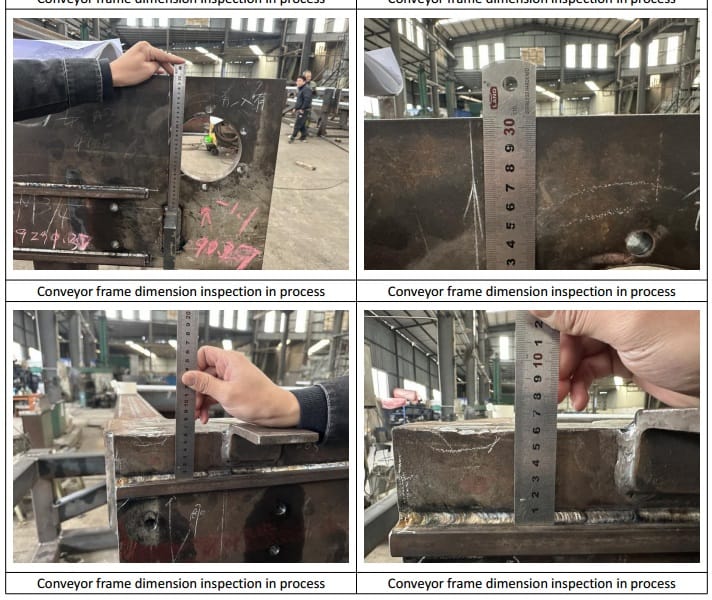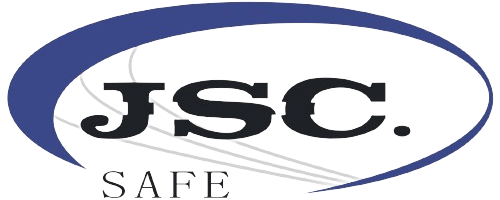Pre-shipment Inspection Report: Ensuring Quality and Compliance in Global Trade
In the complex world of international trade, the pre-shipment inspection report plays a crucial role. It serves as a detailed documentation of the examination and assessment of goods prior to their shipment, providing valuable insights and ensuring that products meet the required standards and specifications. This comprehensive report is not only essential for businesses involved in global trade but also has significant implications for various stakeholders.
The Significance of Pre-Shipment Inspection

Pre-shipment inspection is a critical process that helps safeguard the interests of both buyers and sellers. For buyers, it offers peace of mind, ensuring that the goods they are expecting are of the quality and quantity specified in the contract. It reduces the risk of receiving substandard or non-conforming products, minimizing potential losses and disruptions to their operations. For sellers, a successful pre-shipment inspection can enhance their reputation, build trust with customers, and increase the likelihood of repeat business.
The process of pre-shipment inspection involves a thorough examination of the goods, including their physical condition, quality, packaging, and compliance with relevant regulations and standards. Inspectors carefully assess various aspects such as the appearance, functionality, dimensions, and materials used. They may also conduct tests and inspections to verify the product’s performance and safety.
Types of Pre-Shipment Inspection Reports
There are several types of pre-shipment inspection reports, each with its specific focus and requirements. Some common types include:
- Quality Inspection Report**: This report focuses on evaluating the quality aspects of the goods, such as workmanship, finish, and any defects or imperfections.
- Quantity Inspection Report**: It verifies the quantity of goods being shipped, ensuring that the correct number of items is present.
- Compliance Inspection Report**: This type of report ensures that the goods comply with applicable laws, regulations, and industry standards.
- Technical Inspection Report**: It provides detailed information about the technical specifications and features of the product, ensuring that it meets the required technical criteria.
The Contents of a Pre-Shipment Inspection Report
A pre-shipment inspection report typically includes a range of information. It begins with an introduction that provides an overview of the inspection process and the purpose of the report. The report then details the inspection findings, including any observed issues or deviations from the expected standards. It may also include photographs or samples to support the findings. Additionally, the report includes information about the inspection location, date, and the name and qualifications of the inspecting agency or individual.
The report also provides an assessment of the overall quality and condition of the goods, along with any recommendations for improvement or corrective actions. It may include details about the packaging and labeling requirements to ensure proper protection and identification of the products during transportation. Finally, the report concludes with a summary and an overall evaluation of the goods being inspected.
The Role of Inspecting Agencies
To conduct pre-shipment inspections, specialized inspecting agencies are often engaged. These agencies have the expertise and experience to perform thorough and objective inspections. They employ trained inspectors who are familiar with various product types and industry standards. Inspecting agencies play a vital role in ensuring the accuracy and reliability of the inspection reports. They adhere to strict quality control procedures and maintain professional ethics to provide unbiased and accurate assessments.
Benefits of Pre-Sshipment Inspection for Businesses
For businesses engaged in international trade, pre-shipment inspection offers several benefits. It helps them avoid costly mistakes and delays by identifying potential issues in advance. It enables them to take proactive measures to address any problems and ensure the smooth flow of goods. Moreover, a positive pre-shipment inspection report can enhance their competitive position in the global market, as it demonstrates their commitment to quality and reliability.
Challenges and Considerations
While pre-shipment inspection is beneficial, there are also some challenges and considerations. One of the main challenges is the cost associated with the inspection process, which can add to the overall expenses of doing business. Additionally, coordinating the inspection process with suppliers and ensuring their cooperation can sometimes be a challenge. There may also be variations in inspection standards and requirements across different countries and regions, which can create complexities.
The Future of Pre-Shipment Inspection
As global trade continues to grow and evolve, the importance of pre-shipment inspection is likely to remain significant. Advancements in technology are likely to bring new innovations in inspection methods and tools, making the process more efficient and accurate. There may also be an increased focus on sustainability and environmental considerations in pre-shipment inspection, as businesses strive to meet the growing demands for eco-friendly products.
In conclusion, the pre-shipment inspection report is an essential document in international trade. It provides valuable insights into the quality, quantity, and compliance of goods prior to shipment, helping businesses make informed decisions and mitigate risks. By understanding the significance, types, contents, and benefits of pre-shipment inspection, businesses can better navigate the complexities of global trade and ensure the success of their operations.
Learn more Successful Arctic module fabrication, steel structure, modular and skid, steelwork, supplier audit, DNV Class, Oil & Gas, welding supervisor, welding quality inspection, CWI CSWIP welding inspector, pump and pipe, stainless steel fabrication and CNAS ISO 17025 9712 NDT NDE practice via below-
https://www.jsc-safe.com/steel-structures-modules-machining/
